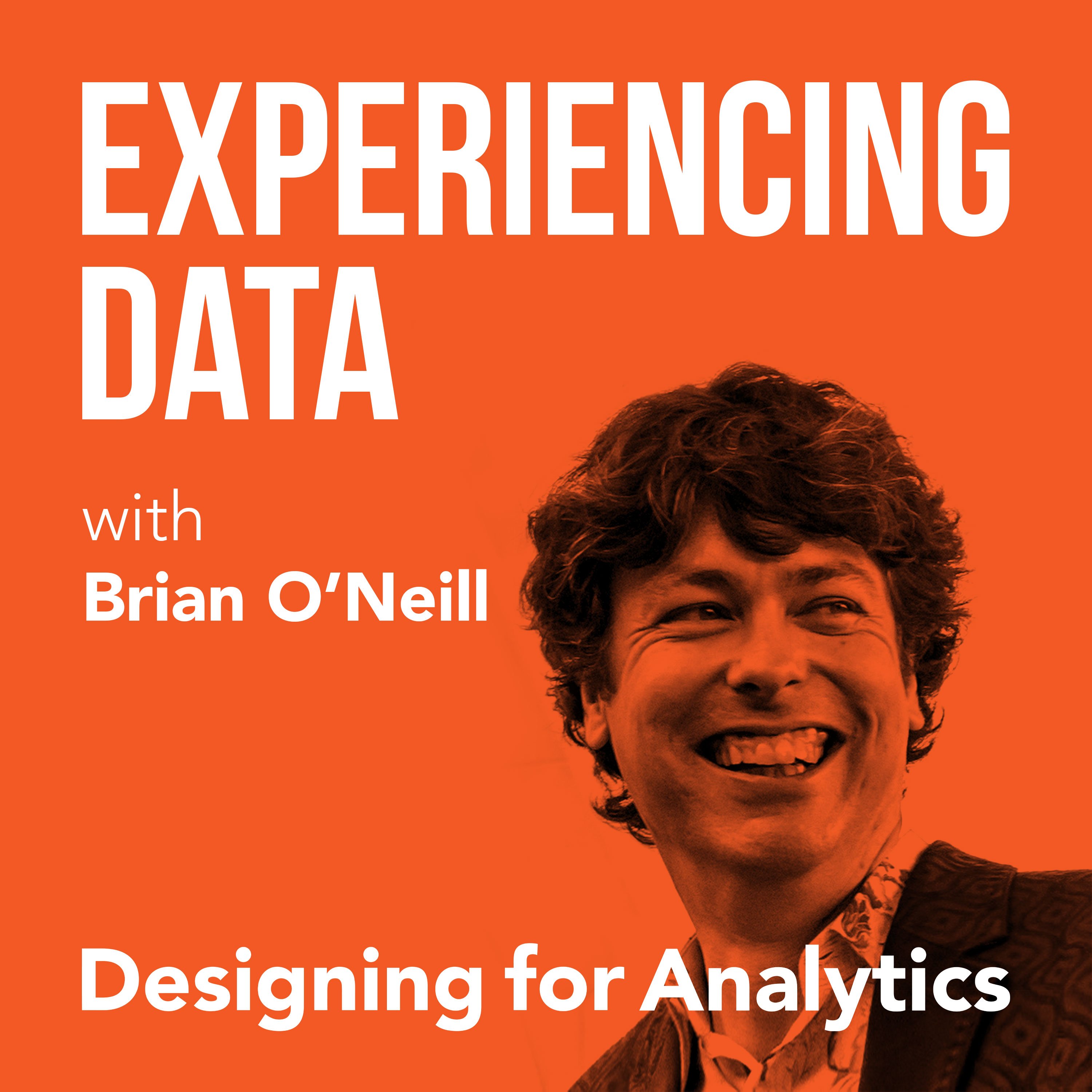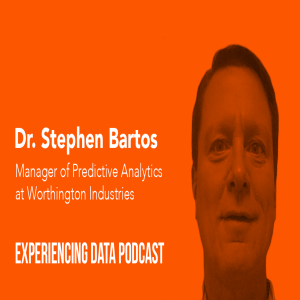

141.4K
Downloads
173
Episodes
Is the value of your enterprise analytics SAAS or AI product not obvious through it’s UI/UX? Got the data and ML models right...but user adoption of your dashboards and UI isn’t what you hoped it would be? While it is easier than ever to create AI and analytics solutions from a technology perspective, do you find as a founder or product leader that getting users to use and buyers to buy seems harder than it should be? If you lead an internal enterprise data team, have you heard that a ”data product” approach can help—but you’re concerned it’s all hype? My name is Brian T. O’Neill, and on Experiencing Data—one of the top 2% of podcasts in the world—I share the stories of leaders who are leveraging product and UX design to make SAAS analytics, AI applications, and internal data products indispensable to their customers. After all, you can’t create business value with data if the humans in the loop can’t or won’t use your solutions. Every 2 weeks, I release interviews with experts and impressive people I’ve met who are doing interesting work at the intersection of enterprise software product management, UX design, AI and analytics—work that you need to hear about and from whom I hope you can borrow strategies. I also occasionally record solo episodes on applying UI/UX design strategies to data products—so you and your team can unlock financial value by making your users’ and customers’ lives better. Hashtag: #ExperiencingData. JOIN MY INSIGHTS LIST FOR 1-PAGE EPISODE SUMMARIES, TRANSCRIPTS, AND FREE UX STRATEGY TIPS https://designingforanalytics.com/ed ABOUT THE HOST, BRIAN T. O’NEILL: https://designingforanalytics.com/bio/
Episodes

Tuesday Jun 04, 2019
Tuesday Jun 04, 2019

Today we are joined by the analytics “man of steel,” Steve Bartos, the Manager of the Predictive Analytics team in the steel processing division at Worthington Industries. 😉 At Worthington, Steve is tasked with strategically driving impactful analytics wider and deeper across the division and, as part of this effort, helps ensure an educated, supported, and connected analytics community. In addition, Steve also serves as a co-leader of the Columbus Tableau User Group.
On today’s episode, Steve and I discuss how analytics are providing internal process improvements at Worthington. We also cover the challenges Steve faces designing effective data-rich products, the importance of the “last mile,” and how his PhD in science education shapes his work in predictive analytics.
In addition, we also talk about:
- Internal tools that Steve has developed and how they help Worthington Industries.
- Preplanning and its importance for creating a solution that works for the client.
- Using analytics to inform daily decisions, aid in monthly meetings, and assist with Kaizen (Lean) focused decisions.
- How Steve pulls out the meaningful pieces of information that can improve the division’s performance.
- How Steve tries to avoid Data-Rich and Insight-Poor customer solutions
- The importance of engaging the customer/user throughout the process
- How Steve leverages his science education background to communicate with his peers and with executives at Worthington
Resources and Links
Quotes from Today’s Episode
“Seeing the way analytics can help facilitate better decision making, doesn't necessarily come with showing someone every single question they can possibly answer, waiting for them to applaud how much time and how much energy and effort you'd saved them.” - Steve Bartos
“It's hard to talk about the influence of different machine parameters on quality if every operator is setting it up based on their own tribal knowledge of how it runs best.” - Steve Bartos
“I think bringing the question back to the user much more frequently, much sooner and at a much more focused scale has paid dividends”. - Steve Bartos
“It's getting the people that are actually going to sit and use these interfaces involved in the creation process… they should be helping you define the goals and the problems… by getting them involved, it makes the adoption process a lot easier.” - Brian O’Neill
“It's real easy to throw up some work that you've done in Tableau around a question that a manager or an executive had. It's real easy to do that. It's really difficult to do that well and have some control of the conversation, being able to say, here's what we did, here was the question, here's the day we use, here's how we analyze it and here's a suggestion where making and now let's talk about why and do that in a way that doesn't lead to an in-the-weeds session and frustration.” - Steve Bartos
No comments yet. Be the first to say something!